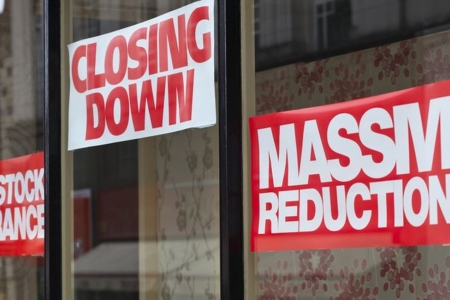Rising costs brought about by the changes made in today's Budget announcement will harm investment, says Helen Dickinson, chief executive of the British Retail Consortium (BRC).
“Retailers are counting the cost of today’s Budget: over £2.3b in increases to employer National Insurance contributions; £367m due to the larger-than-expected rise to the National Living Wage; and a £140m hike to next April’s business rates," she notes.
"These costs come into effect from April next year and are on top of other upcoming regulatory costs and an estimated £300-800m of extra costs from the implementation of the Employment Rights Bill.
“Retail employs three million people and 2.7 million more across supply chains, driving investment in jobs, communities and, ultimately, economic growth, right across the country. For a low-margin industry, today's Budget will hit hard, with the odds now stacked firmly against growth and investment in the short term. These new costs also risk increasing the prices customers pay at the till.
“As the industry prepares for over £2.5b in new costs in 2025, improvements to the business rates system will not come until 2026. We welcome the recognition that retail, along with hospitality businesses, should pay lower rates. But with the detail still to be worked through, it is unclear whether this will address an imbalance which sees retail, as 5% of the economy, pay 21% of the total business rates bill. In order to stimulate investment, it is vital these changes reduce the overall costs on the industry, rather than simply shifting the burden from one part to another.”
On the proposed changes to business rates from 2026, Helen says: “While retailers welcome future action on rates, they are assessing the impact of today’s announcement. There remain many unanswered questions about the new charges and discounts that will be levied from 2026. Charging more to businesses with higher rateable values may punish not only distribution hubs, but also larger stores, which play a key role in attracting footfall to high streets and town centres.
“With retailers paying over 21% of all business rates in the economy, the solution is not to simply shift the burden around, but to look outside retail to address the disproportionate impact of business rates on the industry.”
On the changes to retail, hospitality and leisure relief, she says: “While the extension of the RHL relief to small businesses in 2025-26 may provide support for some small shops across the country, it also represents a significant decrease from the current year. The measures will do nothing to help bigger brands that play such a key role in attracting shoppers and delivering investment for our high streets and town centres. Thriving shops of all sizes are essential to successful high streets to ensure breadth of choice, convenience and experience for customers.”
On employer National Insurance contribution rises, she says: “Increases to National Insurance contributions are yet another case of piling taxes on an already overburdened industry – a decision which will reduce investment in shops and jobs. As a low-margin industry and the UK’s largest private sector employer, the scale of increases will have an immediate and disproportionate effect on both retailers and their supply chains, who together are responsible for employing 5.7 million people across the country.”
On the Minimum Wage rises, she says: “Retailers strongly support the objective of higher wages and pay growth in the industry has outpaced the UK economy in eight of the last nine years. However, with retailers facing increases in costs from implementation of the Employment Rights Bill and National Insurance contributions, investment plans and economic growth will be impacted given the larger-than-expected increase to NLW. This adds £367m more than pre-Budget expectations.”
Finally, on retail crime, Helen notes: “We welcome the Chancellor’s firm stance on shoplifting, with the announcement on extra funding aimed at tackling a scourge that costs the industry over £1.8b. This is on top of the scrapping of the low-level shoplifting threshold, which has resulted in many police forces ignoring smaller crimes. Working closely with the police and Government, retailers are determined to tackle retail crime – from shoplifting, to violence against retail workers.”











